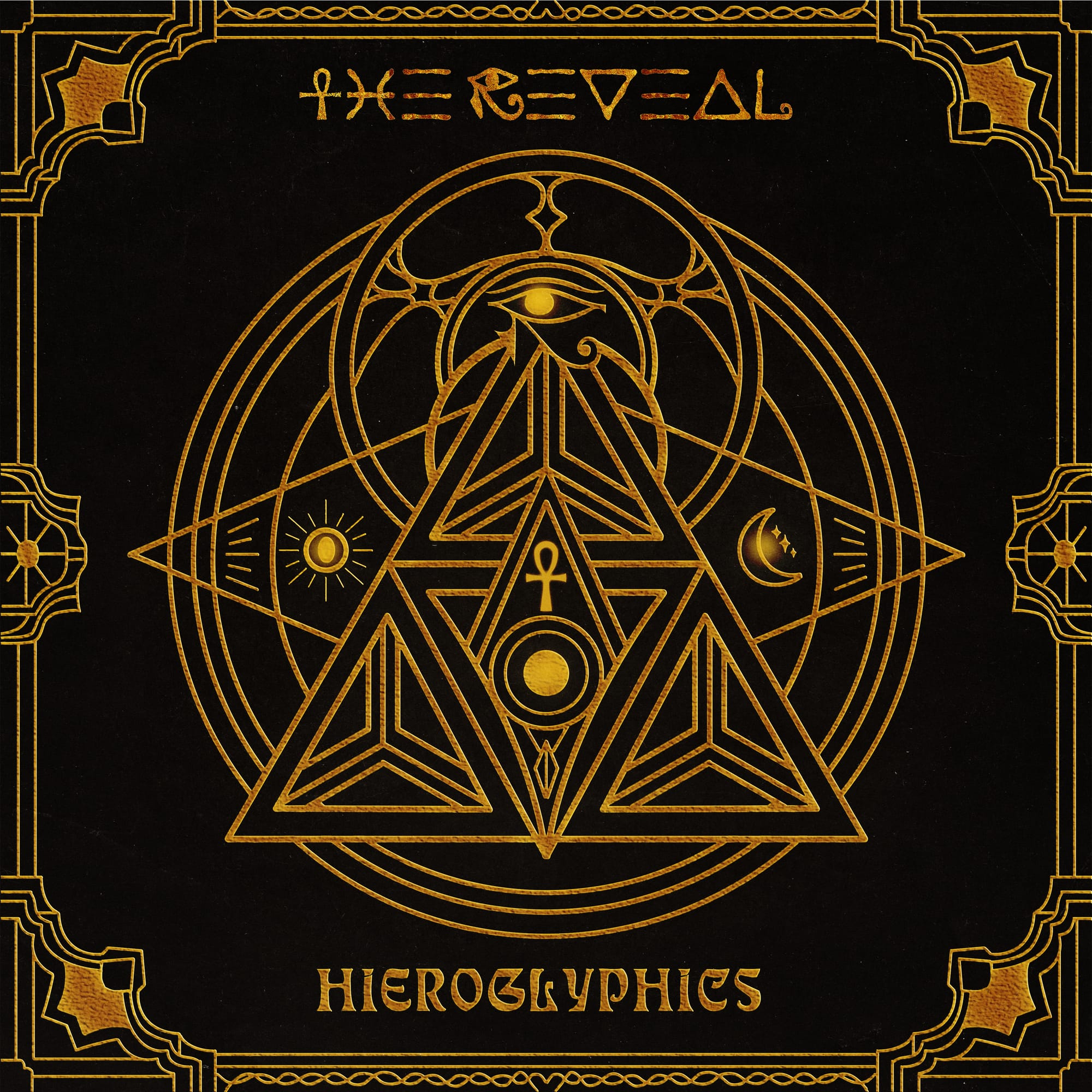Nashville-based power trio The Reveal is taking listeners on a genre-bending journey into the desert with the release of their brand-new album, Hieroglyphics. Inspired by exploring diverse cultures, ancient religions, and spirituality, Hieroglyphics thematically covers identity, transformation, and the overall intricacy of the human experience, while sonically breaking through the defining barriers of rock music. From funky blues riffs to a rap delivery of lyrics to trippy electronics and instrumentals, The Reveal flawlessly blends various elements from a myriad of genres into one cohesive rock soundscape.
Before moving to Nashville, The Reveal began in Kokomo, Indiana with two lifelong friends, vocalist and bassist Brother Dusty and lead guitarist Josh Norfleet. With commanding vocals, a compellingly funky bass, and soulful guitar melodies covered, the two found their final missing piece in Detroit, Michigan drummer Ian Flemming, whose late 90s/early 00s punk energy perfectly rounded out the band’s dynamic. The Reveal released their first album, Do You Know?, in 2020, and followed it up with two EPs, 2022’s The War EP and 2023’s Down South. Hieroglyphics is the trio's second full-length release.

Hieroglyphics kicks things off with a funky blues rock opener called "My Chariot," followed by the hip-hop-laden, synth-infused "Rally the Troops." With "My Chariot," the album's themes of spirituality are apparent as soon as the opening line " Take me, take me, take me and my soul," hits. "My Chariot" was also the first track off of Hieroglyphics to be released as a single. Featuring loud, animated instrumentals and a cadenced lyric delivery, "Rally the Troops" is a shining example of intertwining the rock and hip-hop worlds.
Next up on the album is "Sick Nasty," followed by "Mama Don't Know (Gypsy Lady)," and then "Sorry For The Ruckus." Fueled by killer guitar and bass rifts and plenty of energy from the drums, the verses of "Sick Nasty" have an almost monologue-like delivery, adding a nice touch of refreshing intrigue. "Mama Don't Know (Gypsy Lady)" is a track that those who grew up in the 90s/early 00s rock scene have been dreaming of hearing in a modern release. The sonic grunge and lyrical rapping mixed with funk pizzazz make this song a contender for a Red Hot Chili Peppers album. Released in August as the third single for Hieroglyphics, "Sorry For The Ruckus" is a groovy punk anthem guaranteed to keep the audience moving during shows.
The official lyric video for "Sorry For The Ruckus" by The Reveal.
As Hieroglyphics continues, "Desert Man" plays, followed by the album's title track, "Hieroglyphics." While the title perfectly plays into the LP's overall desert rock vibes, a twangy guitar gives "Desert Man" a country blues flare. All about trying to decipher signs being given by someone else, "Hieroglyphics" builds suspense as the beat grows in volume until the first verse hits. With plenty of electronic elements added to the mix, it's also one of the tracks with a more modern edge to it.
As Hieroglyphics nears close, "A" comes on, and then finally the album's closer, "The Homage." While on the previous track, the use of electronic elements added a flare of modernity, on "A" they have a much darker feel to them. This is further solidified by the intermittent use of vocal distortions. Previously released as the LP's second single, "The Homage" finishes off Hieroglyphics with a bite. While the animated energy from the instrumentals is sure to give crowds a good time, lyrically the song calls out society's greed.
Giving some insight on the song, the band shared, "The Homage is about exposing the greed of our current establishment. My intention is that the lyrics are the devil himself thanking his followers for their service, before announcing that their global pyramid scheme will soon fall."
The official music video for "The Homage' by The Reveal.
The Reveal's most recent album, Hieroglyphics, solidifies their spot as one of the most exciting acts in the Nashville music scene and the rock scene as a whole. Refusing to be tied down by genre, The Reveal instead fully embraces fearless experimentation, and by doing so on such a cohesive level, completely reshapes the idea of what it means to make rock music.



